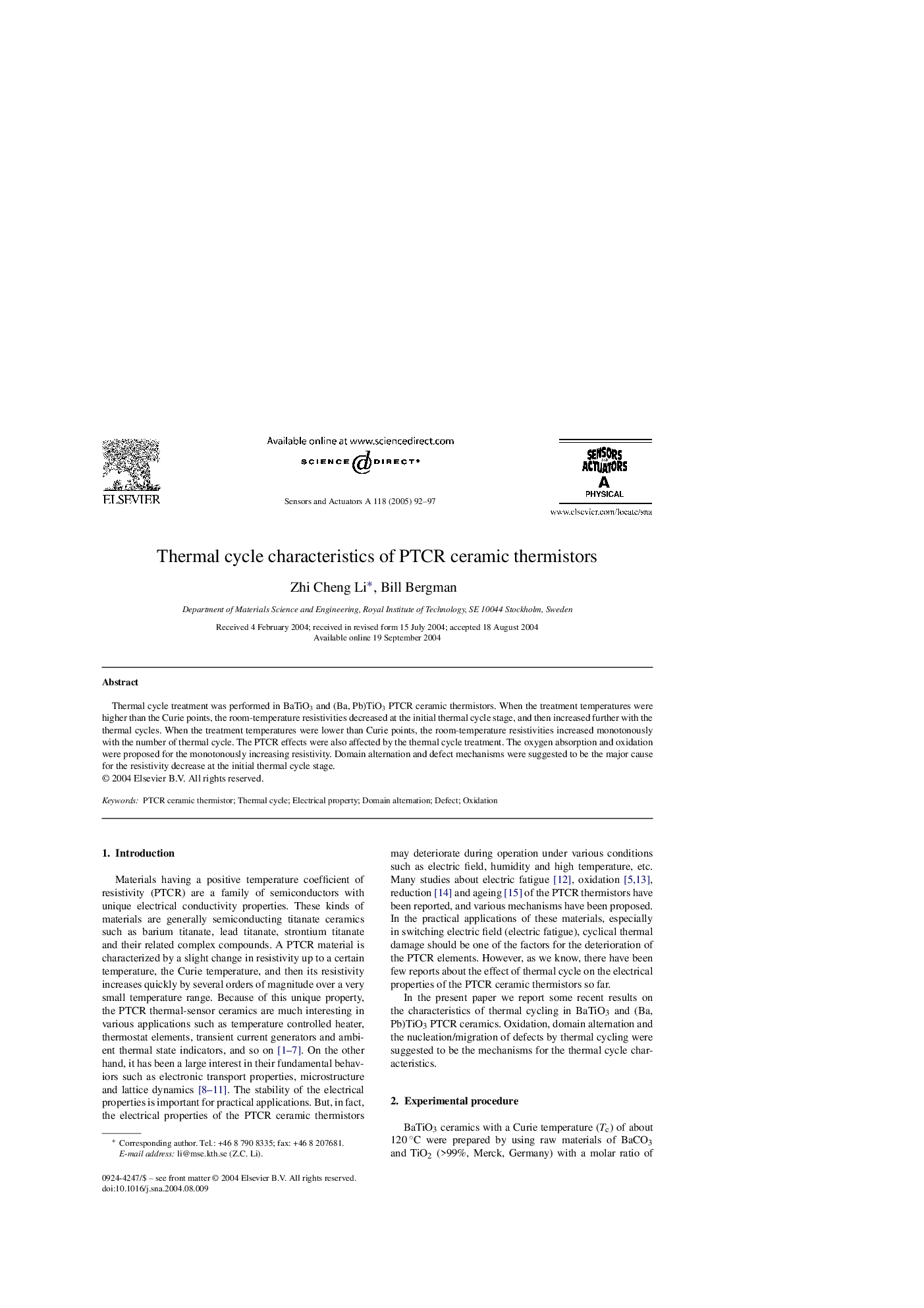| Article ID | Journal | Published Year | Pages | File Type |
|---|---|---|---|---|
| 10412377 | Sensors and Actuators A: Physical | 2005 | 6 Pages |
Abstract
Thermal cycle treatment was performed in BaTiO3 and (Ba, Pb)TiO3 PTCR ceramic thermistors. When the treatment temperatures were higher than the Curie points, the room-temperature resistivities decreased at the initial thermal cycle stage, and then increased further with the thermal cycles. When the treatment temperatures were lower than Curie points, the room-temperature resistivities increased monotonously with the number of thermal cycle. The PTCR effects were also affected by the thermal cycle treatment. The oxygen absorption and oxidation were proposed for the monotonously increasing resistivity. Domain alternation and defect mechanisms were suggested to be the major cause for the resistivity decrease at the initial thermal cycle stage.
Related Topics
Physical Sciences and Engineering
Chemistry
Electrochemistry
Authors
Zhi Cheng Li, Bill Bergman,
